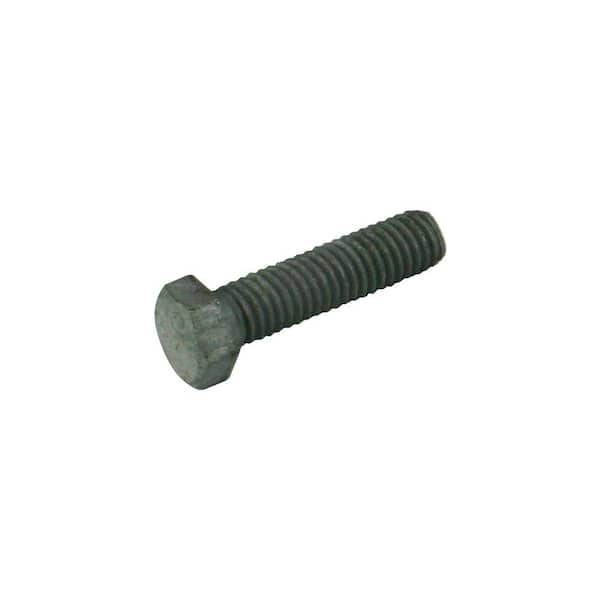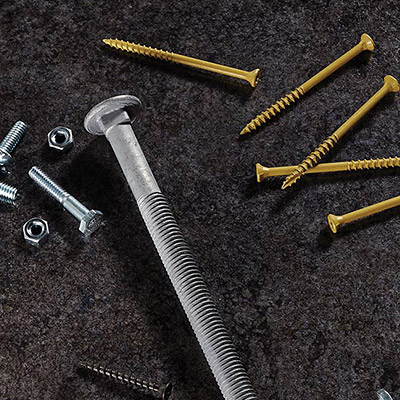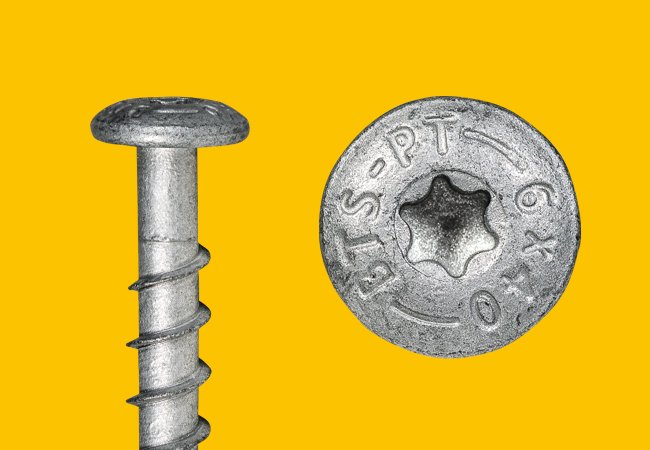

As you embark on your insulation project, one crucial decision you'll need to make is choosing the right insulation screws. These small but essential components play a significant role in the effectiveness and longevity of your insulation system. In this comprehensive buyer's guide, we will explore the importance of insulation screws and the key factors to consider when making your selection.
Insulation screws are specifically designed for securing insulation materials to various surfaces, such as wood, metal, or concrete. These screws are essential for ensuring that the insulation remains securely in place, preventing air leakage and improving energy efficiency. Here are a few reasons why insulation screws are crucial for your project:
Secure Fastening: Insulation screws provide a secure and reliable method of fastening insulation materials, ensuring that they stay in place even in high winds or during vibrations.
Prevents Thermal Bridging: By securely attaching insulation, screws help reduce thermal bridging. Thermal bridging occurs when there are gaps or air pockets between the insulation and the surface, leading to heat loss or gain.
Enhanced Performance: Properly installed insulation screws ensure that insulation materials maintain their optimal thickness and performance over time.
When selecting insulation screws for your project, it's essential to consider the following factors:
Material: Insulation screws are available in various materials, including stainless steel, galvanized steel, and aluminum. Consider the environment and conditions of your project to choose a material that offers corrosion resistance and durability.
Length and Diameter: The length and diameter of the insulation screws should be suitable for the thickness of your insulation material and the surface you're attaching it to. Ensure you choose screws with sufficient length to penetrate the insulation and substrate effectively.
Thread Type: The thread type of the screws determines how well they grip the material. Self-drilling screws with a sharp point are commonly used for insulation projects, as they can penetrate the insulation and substrate without the need for pre-drilling.
Load Capacity: Consider the weight and load that the insulation will experience. Choosing screws with sufficient load capacity ensures that the insulation remains securely fastened, even under heavy loads.
Installation Method: Different insulation screws may require different installation methods. Some screws may be driven in with a power drill, while others may require a specialized tool. Consider your installation requirements and choose screws that are compatible with your preferred installation method.
By considering these factors and selecting the right insulation screws for your project, you can ensure optimal performance, longevity, and energy efficiency for your insulation system.
In conclusion, understanding the importance of insulation screws and considering key factors such as material, length, thread type, load capacity, and installation method will help you choose the right screws for your insulation project. Take the time to research and consult with professionals if needed to ensure that your insulation system is installed effectively and provides the desired benefits for your space.
When it comes to insulation projects, nylon insulation screws are a popular choice due to their durability and affordability. Made from high-quality nylon, these screws are resistant to corrosion, making them suitable for both indoor and outdoor applications. They are also lightweight, making installation easier and faster. Nylon insulation screws are compatible with a variety of materials, including wood, metal, and plastic, making them versatile for various insulation projects. Additionally, they provide excellent insulation properties, reducing the risk of thermal bridging and energy loss. Overall, nylon insulation screws are a reliable and cost-effective option for insulation installations.
For applications that require enhanced strength and durability, stainless steel insulation screws are an ideal choice. Constructed from stainless steel, these screws offer excellent resistance to corrosion, making them suitable for exterior insulation projects or areas with high moisture levels. Stainless steel insulation screws can withstand extreme temperatures and are less prone to wear and tear compared to other materials. They provide a secure and long-lasting solution for insulation installations. Additionally, stainless steel insulation screws are highly reliable and can be used for projects involving heavy-duty insulation materials. Their robust construction ensures a firm hold and prevents loosening over time. While stainless steel insulation screws may be slightly more expensive than other options, they offer exceptional performance and longevity, making them a solid investment for insulation projects.
No matter what type of insulation screw you choose, it is important to consider the specific requirements of your project. Factors such as the type of insulation material, the environment in which it will be installed, and the load-bearing capacity needed should all be taken into account. By selecting the right insulation screws, you can ensure a secure and efficient insulation installation that meets your project's needs.
Here's a table summarizing the key characteristics of nylon and stainless steel insulation screws:
| Type | Material | Corrosion Resistance | Compatibility | Strength |
|---|---|---|---|---|
| Nylon Insulation Screws | Nylon | High | Wood, metal, plastic | Good |
| Stainless Steel Insulation Screws | Stainless Steel | Excellent | Various insulation materials | Excellent |

Are you in the middle of a construction or insulation project and looking for the right insulation screws? It's essential to choose the right screws that will ensure a secure and long-lasting installation. Here are some key features to consider when selecting insulation screws:
When choosing insulation screws, it's crucial to opt for screws that are corrosion-resistant and durable. These screws will be exposed to various weather conditions and potential moisture, so it's vital that they can withstand these elements without rusting or deteriorating over time. Look for screws made from materials such as stainless steel or coated with anti-corrosive substances to ensure their longevity.
Another important consideration is the thread design and grip strength of the insulation screws. The thread design should be optimized to provide maximum holding power and prevent the screws from loosening or pulling out of the insulation material. Look for screws with deep threads and a wide thread angle for enhanced grip strength.
Additionally, it's essential to consider the type of insulation material you'll be working with. Different materials may require specific screw designs or lengths to provide optimal performance. For example, if you're working with polystyrene insulation, screws with large washers or plastic caps can help distribute the load evenly and prevent damage to the insulation board.
When selecting insulation screws, it's always advisable to consult with experts in the field or seek recommendations from suppliers familiar with your specific project requirements. They can provide valuable insights on the most suitable screws for your project, taking into consideration factors such as insulation material, load-bearing capacity, and installation method.
Remember, investing in high-quality insulation screws may require a slightly higher upfront cost, but it can save you time, effort, and money in the long run. Cheap or inferior screws may fail to provide the necessary strength and durability, leading to potential issues such as insulation damage or inefficient insulation performance.
To summarize, when choosing insulation screws, prioritize features such as corrosion resistance, durability, thread design, and grip strength. These factors will ensure a secure and long-lasting installation, providing peace of mind knowing that your insulation project is reliable and effective.

When it comes to choosing the right insulation screws for your project, size and length are two key factors to consider. The diameter and length of the screws will depend on the thickness of the insulation material you are working with.
For insulation materials with a thickness of 1 inch or less, it is recommended to use screws with a diameter of 1/4 inch and a length of 1.5 inches. These screws are commonly used for insulation boards, such as rigid foam and polystyrene.
For insulation materials with a thickness greater than 1 inch, larger diameter screws may be required. It is best to consult the manufacturer's guidelines for specific recommendations. Additionally, the length of the screws should be sufficient to penetrate the insulation material and fasten securely into the underlying structure.
Different insulation materials may have different requirements when it comes to fastening. Here are a few considerations depending on the type of insulation you are using:
Fiberglass insulation: This type of insulation is light and flexible, making it easier to work with. Standard insulation screws can be used, as long as the diameter and length are appropriate for the thickness of the material.
Spray foam insulation: Spray foam insulation creates a solid and durable barrier. It is recommended to use screws with a larger diameter to provide a stronger hold. Consult the manufacturer's guidelines for specific recommendations.
Mineral wool insulation: Mineral wool insulation is denser and heavier compared to other types of insulation. It is important to choose screws that are specifically designed for mineral wool, as they are designed to penetrate and securely fasten this type of material.
It is always a good idea to consult the manufacturer's guidelines or seek advice from a professional when selecting insulation screws. They can provide you with specific recommendations based on the type and thickness of the insulation material you are working with.
Remember, choosing the right insulation screws is crucial for the success and longevity of your project. Taking the time to select the appropriate size and length will ensure that your insulation is securely fastened, providing optimal insulation performance.

Introduction
Choosing the right insulation screws for your project can make a significant difference in the success and longevity of your insulation system. With so many options available on the market, it's essential to understand which screws are best suited for specific types of projects. This comprehensive buyer's guide will help you navigate through the various options and select the most suitable insulation screws for your needs.
When it comes to insulation projects involving concrete or masonry, it's crucial to choose screws that can withstand the unique challenges posed by these materials. Look for insulation screws specifically designed for concrete and masonry applications. These screws often feature a hardened steel construction and a specially coated finish to resist corrosion. Additionally, they typically have a large, flat head that provides enhanced stability when fastening insulation panels to hard surfaces.
Key considerations:
When working with metal structures, it's crucial to choose insulation screws that are specifically designed to handle the unique challenges posed by metal. Look for screws made from stainless steel or other rust-resistant materials. These screws are often self-drilling and come with a sharp point, enabling them to penetrate metal surfaces easily. Additionally, they should have a washer-like head that provides a secure grip on the insulation material.
Key considerations:
Remember that the specific requirements of your project may vary, and it's always a good idea to consult with an experienced professional or supplier to ensure you choose the right insulation screws for your specific needs.
In conclusion, by understanding the specific requirements of your project and considering the unique challenges posed by different materials, you can select the appropriate insulation screws. Whether you're working with concrete, masonry, or metal structures, choosing the right screws will contribute to the success and durability of your insulation system.
Maximizing Energy Efficiency: How Insulation Boards and Insulation Fastening Plates Work Together
2023-10-13Tailored Fasteners for Precision
2023-10-11Enhance Stability with Truss Head Screws
2023-10-10Hex Head Self Drilling Screws: The Perfect Solution For Various Applications By Shenghang Fastener
2023-09-28
Tel: + 0086 15076176199 + 0086 311-87880324
No.3 Mingdu International Building,
Economic and Technological Development
Zone, Linyi
Shandong China
Shandong Shenghang TECHNOLOGY CO.,Ltd